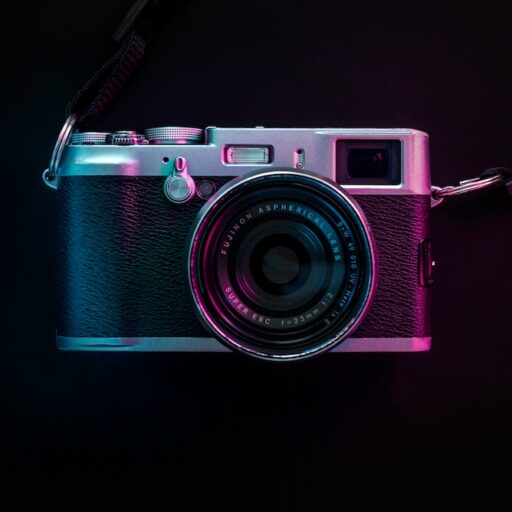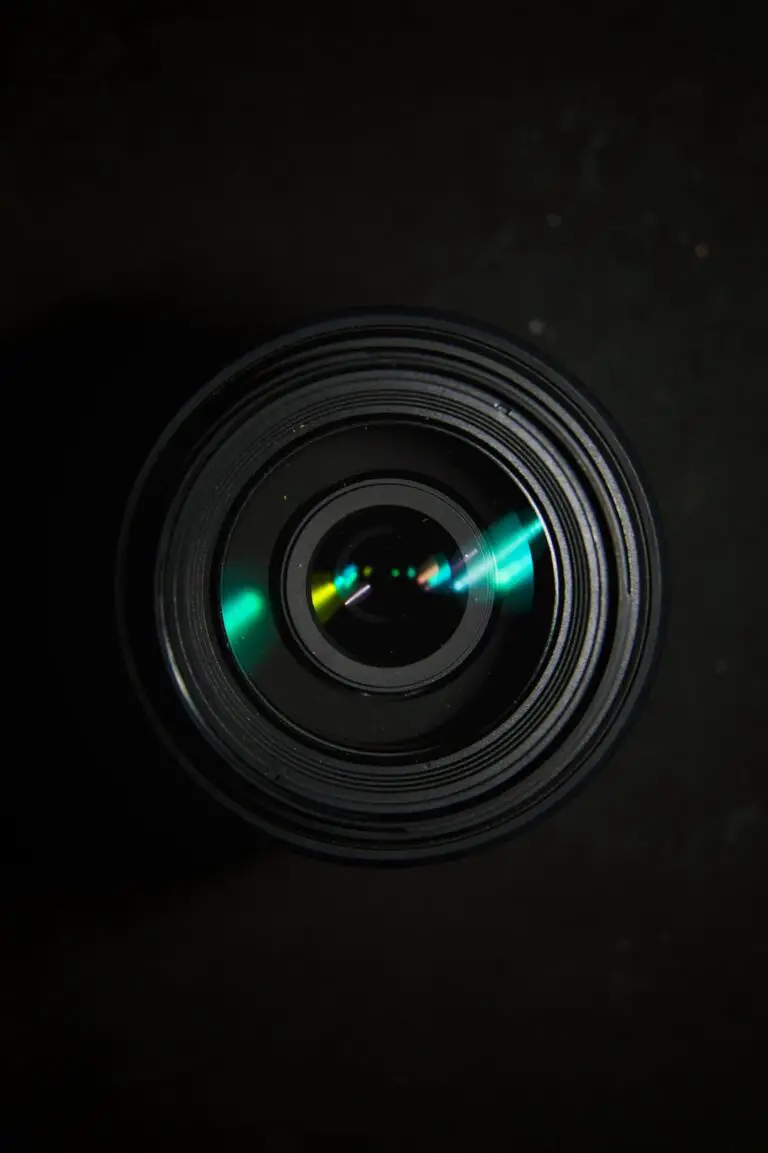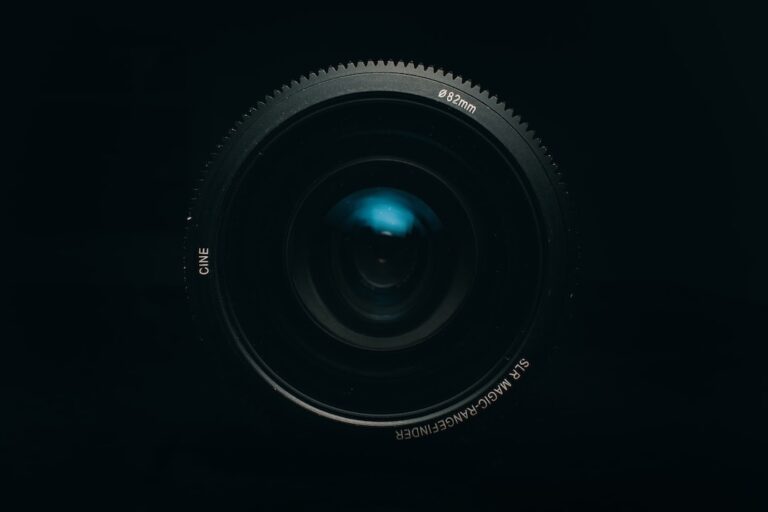Support our educational content for free when you purchase through links on our site. Learn more
📸 Top 18 Best Cameras for Professional Photography Beginners (2025)
Ever felt overwhelmed standing in front of a wall of cameras, wondering which one will truly kickstart your professional photography journey? You’re not alone! We’ve been there too—trying to decode specs, brands, and features that sound like a foreign language. Here’s a little secret from the Camera Brands™ team: the best camera is the one that inspires you to shoot confidently and learn passionately.
In this ultimate 2025 guide, we break down the top 18 cameras perfectly suited for professional photography beginners—from mirrorless marvels like the Fujifilm X-T5 to classic DSLRs like the Canon 6D Mark II, and even timeless film cameras for those craving that analog magic. Plus, we’ll share insider tips on buying used gear, choosing lenses, and mastering your settings so you can start capturing stunning images right away. Ready to find your perfect match? Let’s dive in!
Key Takeaways
- Mirrorless cameras like the Fujifilm X-T5 offer cutting-edge features and intuitive manual controls ideal for beginners aiming for professional quality.
- DSLRs such as the Canon 6D Mark II provide robust build, excellent low-light performance, and longer battery life for traditional shooters.
- Film cameras like the Pentax K1000 remain invaluable for learning exposure and composition the old-school way.
- Buying used gear from trusted sources can save you money without compromising quality—just know what to check!
- Investing in quality lenses and mastering manual settings are crucial steps to elevate your photography skills.
Ready to shop?
- 👉 Shop Mirrorless Cameras: Amazon | B&H Photo
- 👉 Shop DSLR Cameras: Amazon | Canon Official
- Explore Used Cameras: KEH Camera | B&H Used Section
Dive into the full guide to unlock your photography potential!
Table of Contents
- ⚡️ Quick Tips and Essential Facts for Professional Photography Beginners
- 📸 The Evolution of Cameras: A Beginner’s Guide to Professional Photography Gear
- 🔍 About the Best Camera for Professional Photography Beginners: What You Need to Know
- 📊 At a Glance: Top Cameras Perfect for Professional Photography Beginners
- 🥇 10 Best Mirrorless Cameras for Professional Photography Beginners
- 📷 8 Best DSLR Cameras Tailored for Professional Photography Beginners
- 🎞️ The Best Film Cameras for Beginners Wanting That Classic Professional Look
- 💡 Buying Used: How to Score the Best Camera Deals for Professional Photography Beginners
- 🛠️ Essential Features to Look for in Your First Professional Camera
- 🎯 Choosing the Right Lens: A Beginner’s Guide to Professional Photography Lenses
- 📚 Mastering Camera Settings: Tips for Professional Photography Beginners
- 🌟 Real Stories: Photographers Share Their Journey from Beginner to Pro
- 📸 Join Our Community: Connect with Fellow Professional Photography Beginners
- 🎨 Inspiring Photography Websites and Resources to Fuel Your Creativity
- 📝 Conclusion: Your Path to Professional Photography Starts Here
- 🔗 Recommended Links for Professional Photography Beginners
- ❓ FAQ: Answering Your Burning Questions About Cameras for Professional Photography Beginners
- 📖 Reference Links and Further Reading
⚡️ Quick Tips and Essential Facts for Professional Photography Beginners
Welcome to the thrilling world of professional photography! At Camera Brands™, we’ve seen countless beginners embark on this journey, and if there’s one thing we know, it’s that choosing the right camera can make or break your initial experience. Here are some quick nuggets to get you started:
- Sensor Size Matters: Full-frame sensors offer better low-light performance and depth of field control, but APS-C (crop) sensors are lighter and more affordable.
- Mirrorless vs DSLR: Mirrorless cameras are compact, faster, and offer live exposure previews, while DSLRs have longer battery life and a traditional feel.
- Lens Compatibility: Investing in good lenses is as important as the camera body. Prime lenses (like 35mm or 50mm) are great starters.
- Manual Controls: Look for cameras with tactile dials and manual control options to truly learn photography fundamentals.
- Buy Used: Don’t shy away from buying used gear; it’s a smart way to get professional-level equipment on a budget.
Fun fact: Did you know that the Fujifilm X-T5’s film simulations can save you hours in post-processing? Learn more about Fujifilm’s film simulations.
Ready to dive deeper? Let’s unravel the history and evolution of cameras that brought us here.
📸 The Evolution of Cameras: A Beginner’s Guide to Professional Photography Gear
Photography has come a long way since the days of bulky box cameras and glass plates. Understanding this evolution helps you appreciate why modern cameras are designed the way they are.
From Film to Digital: The Leap Forward
- Film Cameras: The original pros used film cameras like the legendary Pentax K1000 — simple, durable, and perfect for learning exposure and composition.
- DSLRs: Digital Single-Lens Reflex cameras brought the convenience of digital with optical viewfinders and interchangeable lenses.
- Mirrorless Revolution: The latest trend, mirrorless cameras, ditch the mirror box for electronic viewfinders, making cameras lighter and faster.
Why Does This Matter?
Knowing the strengths and limitations of each type helps you choose a camera that fits your style and goals. For example, film cameras teach patience and precision, while mirrorless cameras offer cutting-edge autofocus and video features.
For a detailed history, check out the Smithsonian’s photography timeline.
🔍 About the Best Camera for Professional Photography Beginners: What You Need to Know
Choosing your first professional camera isn’t just about specs; it’s about how the camera feels in your hands and how it supports your learning curve.
Key Considerations
- Ergonomics: Does the camera feel comfortable during long shoots?
- Manual Controls: Are ISO, shutter speed, and aperture easily accessible?
- Sensor Size: Full-frame vs APS-C vs Micro Four Thirds — each has pros and cons.
- Lens Ecosystem: Availability and cost of lenses matter for future growth.
- Durability: Weather sealing and build quality can extend your camera’s life.
- Battery Life: Longer battery life means less interruption during shoots.
Our Take
The Fujifilm X-T5 stands out for beginners who want manual control and superb image quality in a compact body. Meanwhile, the Canon 6D Mark II offers a full-frame experience with excellent low-light performance and a traditional DSLR feel.
Want to see how these stack up? Let’s check out the top contenders.
📊 At a Glance: Top Cameras Perfect for Professional Photography Beginners
Here’s a quick comparison table of some of the best cameras for professional photography beginners, rated on a 1-10 scale by our Camera Brands™ experts:
| Camera Model | Design | Functionality | Image Quality | Battery Life | Ease of Use | Overall Score |
|---|---|---|---|---|---|---|
| Fujifilm X-T5 | 9 | 9 | 9 | 7 | 8 | 8.5 |
| Canon 6D Mark II | 8 | 8 | 8 | 9 | 7 | 8.0 |
| Nikon ZF | 8 | 8 | 8 | 7 | 7 | 7.5 |
| Ricoh GR III | 7 | 7 | 7 | 6 | 9 | 7.0 |
| Leica Q3 | 9 | 9 | 10 | 6 | 6 | 8.0 |
| Pentax K1000 (Film) | 6 | 5 | 7 | N/A | 7 | 6.0 |
🥇 10 Best Mirrorless Cameras for Professional Photography Beginners
Mirrorless cameras are the hottest trend, and for good reason. They combine cutting-edge tech with portability and excellent image quality.
| Model | Sensor | Megapixels | IBIS (In-Body Stabilization) | Weather Sealing | Autofocus Points | Battery Life (Shots) | Why We Love It |
|---|---|---|---|---|---|---|---|
| Fujifilm X-T5 | APS-C | 40 | Yes (7 stops) | Yes | 425 | ~740 | Film simulations, tactile dials |
| Sony A7 IV | Full-frame | 33 | Yes | Yes | 759 | ~610 | Superb autofocus, video capabilities |
| Canon EOS R6 Mark II | Full-frame | 24.2 | Yes | Yes | 1053 | ~510 | Eye-tracking AF, excellent low-light |
| Nikon Z50 | APS-C | 20.9 | No | No | 209 | ~320 | Lightweight, beginner-friendly |
| Panasonic Lumix GH6 | Micro Four Thirds | 25.2 | Yes | Yes | 315 | ~400 | Great video features |
| Olympus OM-D E-M10 Mark IV | Micro Four Thirds | 20.3 | Yes | No | 121 | ~360 | Compact, easy to use |
| Canon EOS R50 | APS-C | 24.2 | No | No | 651 | ~320 | Affordable, great autofocus |
| Fujifilm X-S10 | APS-C | 26.1 | Yes | No | 425 | ~325 | IBIS, beginner-friendly controls |
| Sony A6400 | APS-C | 24.2 | No | No | 425 | ~410 | Fast autofocus, compact design |
| Leica Q3 | Full-frame | 60 | No | Yes (IP52) | N/A | ~350 | Luxury build, superb image quality |
Why Mirrorless?
- Live Exposure Preview: See your settings’ effect in real-time.
- Compact & Lightweight: Easier to carry all day.
- Advanced Autofocus: Eye-tracking and subject recognition.
- Video Capabilities: 4K and beyond for hybrid shooters.
Pro Tip: If you’re serious about learning manual controls, the Fujifilm X-T5’s tactile dials are a game-changer. Explore Fujifilm X-T5 on Amazon.
📷 8 Best DSLR Cameras Tailored for Professional Photography Beginners
DSLRs still hold a special place for those who love the classic feel and longer battery life.
| Model | Sensor | Megapixels | Autofocus Points | Battery Life (Shots) | Weather Sealing | Why We Recommend It |
|---|---|---|---|---|---|---|
| Canon 6D Mark II | Full-frame | 26.2 | 45 | ~1200 | Yes | Great low-light, durable, Wi-Fi/GPS |
| Nikon D3500 | APS-C | 24.2 | 11 | ~1550 | No | Affordable, excellent battery life |
| Canon EOS Rebel T7 | APS-C | 24.1 | 9 | ~500 | No | Budget-friendly, easy to use |
| Nikon D5600 | APS-C | 24.2 | 39 | ~970 | No | Articulating touchscreen, good AF |
| Pentax K-70 | APS-C | 24.2 | 11 | ~1100 | Yes | Weather-sealed, rugged |
| Canon 90D | APS-C | 32.5 | 45 | ~1300 | No | High resolution, fast AF |
| Nikon D7500 | APS-C | 20.9 | 51 | ~950 | Yes | Great for sports and wildlife |
| Canon 7D Mark II | APS-C | 20.2 | 65 | ~670 | Yes | Durable, fast burst rate |
DSLR Pros and Cons
✅ Pros: Longer battery life, optical viewfinder clarity, robust build.
❌ Cons: Bulkier, fewer video features, slower live view autofocus.
Personal Story: One of our team members started with a Nikon D3500 and loved how the battery lasted through entire weddings without a recharge!
🎞️ The Best Film Cameras for Beginners Wanting That Classic Professional Look
Film photography is making a comeback, and for good reason — it teaches patience, composition, and the magic of analog.
| Camera Model | Film Format | Build Quality | Ease of Use | Why It’s Great for Beginners |
|---|---|---|---|---|
| Pentax K1000 | 35mm | Durable | Simple | Classic manual controls, affordable |
| Canon AE-1 | 35mm | Solid | Beginner-friendly | Reliable, great lens ecosystem |
| Nikon FM2 | 35mm | Rugged | Manual | Fully mechanical, weather-sealed |
| Olympus OM-1 | 35mm | Compact | Manual | Lightweight, great for street photography |
| Minolta SRT-101 | 35mm | Sturdy | Manual | Excellent meter, classic design |
Why Choose Film?
- Develops a deep understanding of exposure and light.
- Encourages thoughtful shooting — no instant delete button!
- Produces timeless, organic images with unique grain and color.
Tip: Start with a Pentax K1000 — it’s the gold standard for beginners and widely available used.
💡 Buying Used: How to Score the Best Camera Deals for Professional Photography Beginners
Buying used gear can be a savvy move, but it requires some caution.
Step-by-Step Guide to Buying Used Cameras
- Research the Model: Know the common issues and market price.
- Buy from Reputable Sellers: Consider certified refurbished from brands or trusted marketplaces like KEH or B&H Photo.
- Check Shutter Count: Like mileage on a car, shutter count indicates usage. Lower is better.
- Inspect for Damage: Look for scratches, dents, sensor dust, and lens fungus.
- Test All Functions: Autofocus, buttons, dials, screen, flash, and ports.
- Return Policy: Ensure there’s a return window in case of defects.
Where to Look?
- KEH Camera — Trusted used camera dealer.
- B&H Photo Video Used Section
- Adorama Used Cameras
- eBay (with buyer protection)
Pro Tip: Buying a used Fujifilm X-T5 or Canon 6D Mark II can save you hundreds while still getting a professional-grade camera.
🛠️ Essential Features to Look for in Your First Professional Camera
What features truly matter when you’re just starting out? Here’s our expert breakdown:
- Manual Control Dials: Quick access to ISO, shutter speed, and aperture.
- In-Body Image Stabilization (IBIS): Helps reduce blur from shaky hands.
- Weather Sealing: Protects your investment from the elements.
- Articulating Screen: Great for shooting at tricky angles or vlogging.
- Autofocus System: Look for face and eye detection for portraits.
- Connectivity: Wi-Fi and Bluetooth for easy sharing and remote control.
- Dual Card Slots: For backup and extended shooting sessions.
Example: The Fujifilm X-T5 shines with IBIS, weather sealing, and tactile dials, making it a favorite for beginners aiming for professional results.
🎯 Choosing the Right Lens: A Beginner’s Guide to Professional Photography Lenses
Your camera body is just the start — lenses define your style and image quality.
Lens Types Explained
- Prime Lenses: Fixed focal length (e.g., 35mm, 50mm). Sharp, fast apertures, great for portraits and low light.
- Zoom Lenses: Variable focal length (e.g., 24-70mm). Versatile for events and travel.
- Wide-Angle: For landscapes and architecture.
- Telephoto: For wildlife and sports.
- Macro: Close-up photography.
Starter Lens Recommendations
- 50mm f/1.8 (“Nifty Fifty”): Affordable, sharp, and excellent for portraits.
- 24-70mm f/2.8: The workhorse zoom for professionals.
- 35mm f/1.4 or f/2: Great for street and environmental portraits.
Lens Compatibility Tip: Make sure your lens mount matches your camera (e.g., Canon RF for mirrorless, EF for DSLR).
📚 Mastering Camera Settings: Tips for Professional Photography Beginners
Mastering your camera’s settings is like learning the language of light and motion.
Step-by-Step to Manual Mastery
- Understand Exposure Triangle: ISO, shutter speed, aperture.
- Start in Aperture Priority Mode: Control depth of field while the camera handles shutter speed.
- Experiment with Shutter Priority: Freeze or blur motion.
- Use Manual Mode: When confident, control all settings yourself.
- Learn Metering Modes: Evaluative, center-weighted, spot metering for tricky lighting.
- White Balance: Adjust for accurate colors or creative effects.
- Shoot RAW: Gives you maximum editing flexibility.
Pro Tip: Practice shooting the same scene with different settings to see their effects firsthand.
🌟 Real Stories: Photographers Share Their Journey from Beginner to Pro
Nothing inspires like real-life journeys. Here’s what some of our Camera Brands™ pros say:
- “Starting with a Nikon D3500, I learned patience and composition. Upgrading to a Canon 6D Mark II felt like a leap into the big leagues!” — Sarah M., Wedding Photographer
- “The Fujifilm X-T5’s tactile dials helped me understand exposure better than any tutorial.” — James L., Street Photographer
- “Shooting film with a Pentax K1000 taught me to slow down and really see my subject.” — Emily R., Fine Art Photographer
Their advice? Don’t rush gear upgrades. Master your current camera first, and the rest will follow.
📸 Join Our Community: Connect with Fellow Professional Photography Beginners
Photography is more fun when shared! Join our thriving community at Camera Brands™ to:
- Share your photos and get feedback
- Ask questions and get expert advice
- Participate in monthly photo challenges
- Access exclusive tutorials and guides
Join here: Camera Brands Community
🎨 Inspiring Photography Websites and Resources to Fuel Your Creativity
Feeling stuck? These sites will spark your creativity and help you learn:
- 500px — Stunning photo portfolios from pros worldwide
- Fstoppers — Tutorials, gear reviews, and industry news
- Digital Photography School — Beginner to advanced tips
- The Phoblographer — Gear reviews and photography culture
- Cambridge in Colour — Deep dive into photography techniques
Bonus: Follow our own Camera Brands™ Blog for insider tips and gear comparisons.
📝 Conclusion: Your Path to Professional Photography Starts Here
So, what’s the final verdict after our deep dive into the best cameras for professional photography beginners? Whether you’re drawn to the tactile charm of the Fujifilm X-T5, the classic reliability of the Canon 6D Mark II, or the rugged simplicity of the Pentax K1000 film camera, each offers unique strengths tailored to different learning styles and shooting preferences.
Positives:
- Fujifilm X-T5: Exceptional image quality, intuitive manual controls, weather sealing, and film simulations that speed up your workflow.
- Canon 6D Mark II: Full-frame sensor with excellent low-light performance, durable build, and user-friendly features like Wi-Fi and GPS.
- Pentax K1000: Perfect for those wanting to learn the fundamentals of exposure and composition with film, offering a hands-on, analog experience.
Negatives:
- Fujifilm X-T5’s battery life is decent but not the longest, so carrying spares is wise.
- Canon 6D Mark II is bulkier than mirrorless options and lacks 4K video.
- Film cameras like the Pentax K1000 require patience and additional costs for film and development.
Our Confident Recommendation: For most beginners aiming to master professional photography, the Fujifilm X-T5 strikes the perfect balance between learning tools, image quality, and portability. If you prefer a traditional DSLR feel with full-frame advantages, the Canon 6D Mark II is a solid choice. And if you want to embrace the art of film, the Pentax K1000 remains the gold standard.
Remember, the best camera is the one that inspires you to shoot consistently and learn passionately. Now that you know what to look for and where to find it, it’s time to grab your camera and start capturing those unforgettable moments! 📸✨
🔗 Recommended Links for Professional Photography Beginners
👉 CHECK PRICE on:
-
Fujifilm X-T5:
Amazon | B&H Photo | Fujifilm Official Website -
Pentax K1000 (Used):
KEH Camera | eBay
Recommended Books for Beginners:
- Understanding Exposure by Bryan Peterson — Amazon
- The Digital Photography Book by Scott Kelby — Amazon
- Film Is Not Dead by Jonathan Canlas — Amazon
❓ FAQ: Answering Your Burning Questions About Cameras for Professional Photography Beginners
What are the key features to look for in a professional camera for beginners?
When starting out, focus on cameras that offer:
- Manual control dials for ISO, shutter speed, and aperture to learn exposure fundamentals.
- Good autofocus systems with face and eye detection to help nail sharp portraits.
- In-body image stabilization (IBIS) to reduce blur from hand shake.
- Weather sealing for durability during outdoor shoots.
- Articulating screens for creative angles and vlogging.
- Connectivity options like Wi-Fi and Bluetooth for easy sharing and remote control.
- Battery life sufficient for your shooting style.
These features help you learn faster and shoot more confidently.
What is the best camera brand for professional photography, and why is it preferred by beginners?
Canon, Nikon, and Fujifilm are the top brands favored by beginners for different reasons:
- Canon: Known for user-friendly ergonomics, excellent color science, and a vast lens ecosystem. The Canon 6D Mark II is a popular beginner full-frame DSLR.
- Nikon: Offers rugged build quality and great image quality, with models like the Nikon ZF mirrorless gaining traction.
- Fujifilm: Praised for tactile controls, film simulations, and APS-C sensors that punch above their weight, especially with the X-T5.
Beginners prefer these brands because they balance ease of use with room to grow into professional features.
How much should I expect to spend on a professional camera as a beginner photographer?
Professional-grade beginner cameras typically range from mid to high hundreds up to around two thousand dollars for the body alone. Keep in mind:
- Entry-level DSLRs and mirrorless cameras like the Nikon D3500 or Canon EOS Rebel T7 are budget-friendly.
- Mid-tier models such as the Fujifilm X-T5 or Canon 6D Mark II offer more advanced features and better image quality.
- Don’t forget to budget for lenses, memory cards, and accessories.
Buying used or refurbished gear can save you significant money without sacrificing quality.
What are some essential accessories that I need to get started with professional photography as a beginner?
Starting strong means having the right accessories:
- Extra batteries and charger: Never miss a shot due to power loss.
- Memory cards: Fast and reliable cards with ample storage.
- Camera bag: Protects your gear and keeps it organized.
- Tripod: Essential for long exposures and stable shots.
- Lens cleaning kit: Keep your glass spotless.
- External flash or reflector: Improve lighting in tricky conditions.
- Comfortable camera strap: For long shooting sessions.
These accessories enhance your shooting experience and protect your investment.
📖 Reference Links and Further Reading
- Fujifilm Official X-T5 Product Page
- Canon USA EOS 6D Mark II
- Nikon ZF Mirrorless Camera
- Pentax K1000 Film Camera Overview
- KEH Used Cameras
- B&H Photo Video Used Cameras
- Becca Jean Photography: Best Canon Camera for Family Photography
For more in-depth guides and comparisons, explore our Camera Buying Guide and Camera Comparisons at Camera Brands™.
Ready to take the leap? Your perfect camera awaits — and we’re here cheering you on every step of the way! 📸🚀




